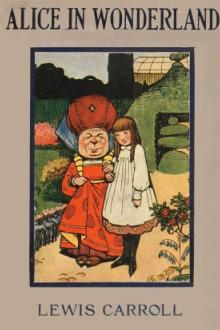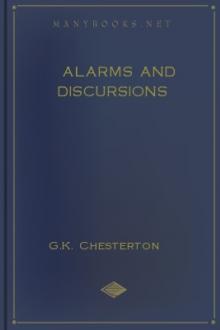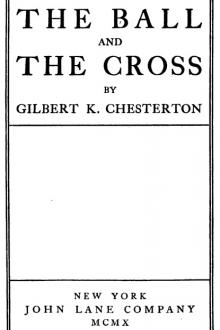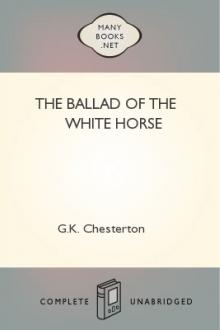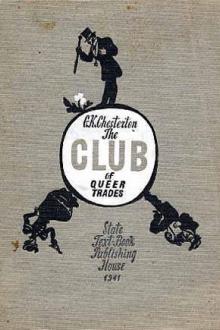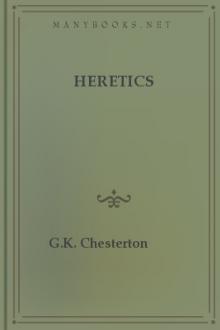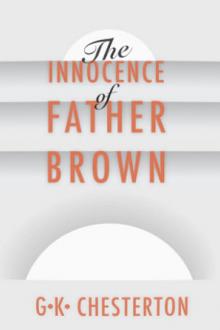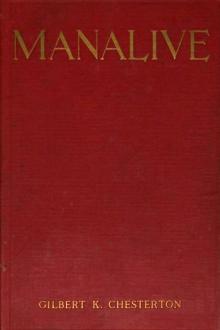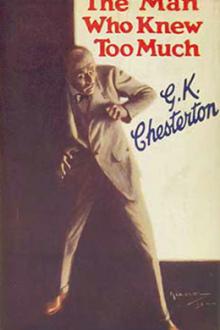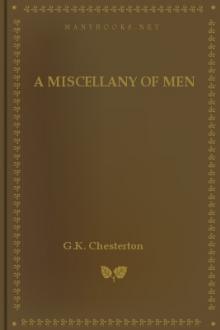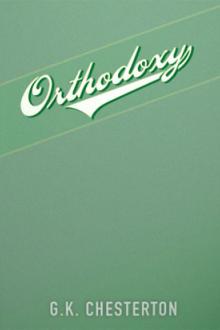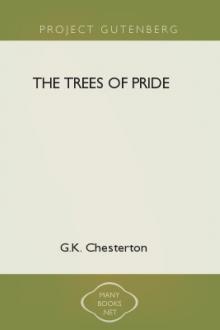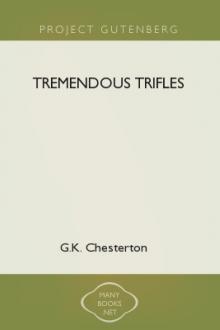The Man Who Was Thursday
Book Excerpt
"Is he really an anarchist, then?" she asked.
"Only in that sense I speak of," replied Syme; "or if you prefer it, in that nonsense."
She drew her broad brows together and said abruptly--
"He wouldn't really use--bombs or that sort of thing?"
Syme broke into a great laugh, that seemed too large for his slight and somewhat dandified figure.
"Good Lord, no!" he said, "that has to be done anonymously."
And at that the corners of her own mouth broke into a smile, and she thought with a simultaneous pleasure of Gregory's absurdity and of his safety.
Syme strolled with her to a seat in the corner of the garden, and continued to pour out his opinions. For he was a sincere man, and in spite of his superficial airs and graces, at root a humble one. And it is always the humble man who talks too much; the proud man watches himself too closely. He defended respectability with violence and exaggeration. He grew passionate in his praise of tidiness and propriety. All
Editor's choice
(view all)Popular books in Satire, Religion, Fiction and Literature, Mystery/Detective, Fantasy
Readers reviews
It is clear that there are many symbols and Christian allegory that a reader can explore when reading this book but one has to keep in mind that Chesterton was writing in the aftermath of the Chicago Haymarket Riot, the Greenwich Observatory bombing, and at a time when a fear of bomb throwing anarchists was gripping Europe. Being a very perceptive individual, Chesterton saw through much of the spin in the media and pointed to the source of much of the problem, governments and police forces that used fear and manipulated individuals to exaggerate or manufacture threats in order to divert a critical public from their own failures.
When read from that perspective the novel becomes something more than just beautiful writing and helps the reader understand certain events in the post 9/11 world. Another book that makes very similar points is Joseph Conrad's, The Secret Agent.
- Upvote (0)
- Downvote (0)
Allegory becomes more important in the second half of the book, and can be best appreciated by recalling the reference to dreams in the full title. There is no reason to let it put you off or stop you from reading and enjoying this book. I think it is all part of GKC asking you to come and play! This quality is a large part of his endearing and durable charm.
The plots twists and turns delightfully. This is an author who keeps story-telling in mind. It can be a rapid read, but at many points it is worth your while to slow down or even pause to consider GKC\\\'s remarkable way of looking at the world, and to appreciate this unique voice.
But this one was a little bit beyond my level. I felt like I was blundering through a white fog, knowing that there was symbolic images but not understanding the meaning behind it. The plot itself was obviously a stage for the metaphysical symbolisms.
There are much better men than I to give reviews and critiques of the book, so I will merely say that, if, like me, you have a hard time understanding hidden meanings and symbolism, then this book is not for you.
I am not sure what rating to give this book, so I will leave it at the default three.
Keep in mind, though, it's not a "straight" novel--more of an allegory. But that will only disappoint people obsessed with realism.
It seems he only wrote four or five novels. Pity.
I will read the rest as time allows.
"...The point is that it described, first a band of the last champions of order fighting against what appeared to be a world of anarchy, and then the discovery that the mysterious master both of the anarchy and the order was the same sort of elemental elf who had appeared to be rather too like a pantomime ogre. This line of logic, or lunacy, led many to infer that this equivocal being was meant for a serious description of the Deity; and my work even enjoyed a temporary respect among those who like the Deity to be so described.
But this error was entirely due to the fact that they had read the book but had not read the title page. In my case, it is true, it was a question of a subtitle rather than a title. The book was called The Man Who Was Thursday: A Nightmare. It was not intended to describe the real world as it was, or as I thought it was, even when my thoughts were considerably less settled than they are now. It was intended to describe the world of wild doubt and despair which the pessimists were generally describing at that date; with just a gleam of hope in some double meaning of the doubt, which even the pessimists felt in some fitful fashion.
The narrator is introduced to a band of terrorist anarchists who, one by one, are revealed to all be agents sent by a single man -- a man who turns out to be something like a god. That is the nightmare part.
What can I say. Chesterton is a great writer and his Father Brown stories are excellent both as mysteries and as moral inquiries. I wish I knew Father Brown.
There is no such likable character in "The Man Who Was Thursday." Oh sure the writing is up to Chesterton's usual high standard, and the story moves along well enough, and I was never bored.
But I was left wondering what the point was -- especially since Chesterton himself disavowed the most obvious reading (that the man in charge was actual some sort of insane God). I imagine Chesterton scholars can explain the whole thing, but I was left wishing for something.
On the other hand, this book makes me think of stories like Raymond Chandler's "The Long Goodbye" (spoiler alert, if you haven't already read that really good mystery) in which the central crime is eventually revealed to actually not have occurred. In Chandler's moral universe, no explanation is necessary, but somehow I had hoped for more from the creator of Father Brown.
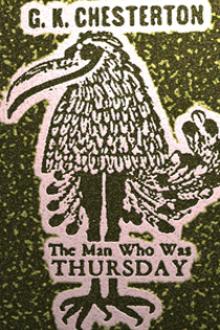
 Free Download
Free Download

















